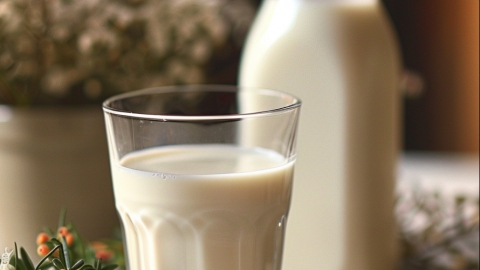Can I drink milk if I have excessive dampness?
Generally, patients with excessive dampness can consume milk, although excessive consumption is not recommended. Detailed explanations are as follows:

Milk is neutral in nature and neither generates damp heat nor cold dampness. Moderate consumption will not exacerbate internal dampness. Moreover, milk contains high-quality protein, which includes various essential amino acids closely matching the body's requirements and is easily absorbed and utilized, providing energy and enhancing physical condition. For symptoms commonly associated with excessive dampness, such as physical fatigue and mental lethargy, adequate protein intake can help improve overall physical condition. Additionally, milk contains rich amounts of minerals such as calcium, phosphorus, and potassium. Calcium is essential for maintaining healthy bones, phosphorus participates in energy metabolism, and potassium helps maintain electrolyte balance in the body. These nutrients work together to support normal physiological functions. Furthermore, lactose in milk can promote the growth of beneficial intestinal bacteria, helping maintain a balanced intestinal microbiota, which plays a positive role in the transformation and elimination of dampness.
When drinking milk, it is important to control the amount consumed and avoid drinking too much at once to prevent increasing the burden on the gastrointestinal tract. It is preferable to choose milk at room temperature rather than chilled milk, to reduce irritation to the stomach and spleen. If gastrointestinal discomfort occurs after drinking milk, appropriately reducing the amount consumed or adjusting the timing of consumption according to individual conditions may help alleviate symptoms.







